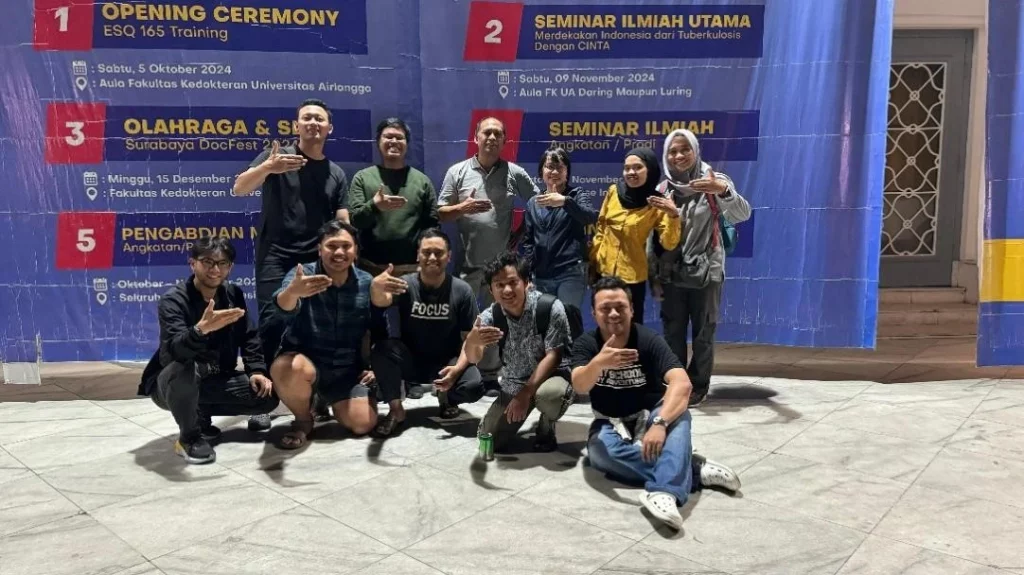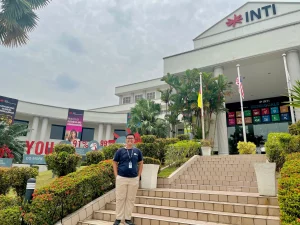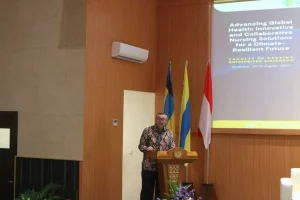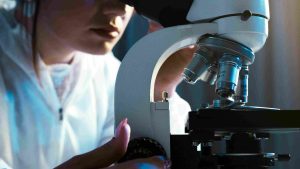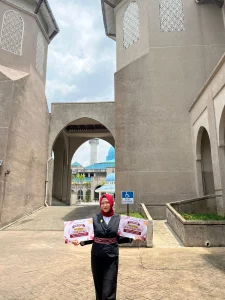UNAIR NEWS – The Ksatria Airlangga Floating Hospital (RSTKA) continues its humanitarian initiatives, this time delivering vital healthcare services to the isolated Masalembu Island in the Java Sea. With a population of approximately 22,599, the island is reachable only by two vessels—KM Sabuk Nusantara I and KM Sabuk Nusantara II—each operating biweekly trips to and from the island.
Challenges on Masalembu
Masalembu residents have limited access to healthcare services, relying on the local Puskesmas Masalembu health center. For medical specialist treatment or hospital care, they must travel to either Sumenep or Surabaya. The distance to Sumenep’s Kalianget Port is 115 nautical miles, requiring a 14-hour trip on KM Sabuk Nusantara, while Surabaya lies 160 nautical miles away, requiring a 16-18 hour journey.
This journey is especially daunting for expectant mothers needing cesarean sections. During the western monsoon season (December through March), there is high seas, preventing the Sabuk Nusantara ships—the island’s main transportation link—from operating, which further complicates emergency referrals.
In response, RSTKA regularly dispatches medical teams to Masalembu. This team consists of four general practitioners and residents specializing in pediatrics, obstetrics and gynecology, ophthalmology, internal medicine, surgery, and pulmonology, enabling comprehensive diagnosis and treatment. The team also brings essential medical equipment and medications to ensure proper patient care.
Pentahelix approach
Like the previous missions to Kangean Island and the Sapeken Islands, this mission’s theme is “Towards a TB-Free Island,” aligning with national efforts to reduce tuberculosis (TB) rates. Indonesia currently ranks second worldwide for TB cases, largely due to reliance on medical personnel alone for TB interventions.
Dr. Yohanes, leading the “Towards a TB-Free Island” mission, shared that RSTKA’s strategy employs a pentahelix approach, involving local government representatives (subdistrict officials, military leaders, police chiefs), healthcare workers, teachers, community and religious figures, business leaders, NGO activists, and local journalists. “We’re inviting them to discuss ways they can contribute to making their island TB-free,” he explained.
Healthcare services were delivered using a “posyandu” system, where general practitioners and specialists provided care based on their areas of expertise. This setup aims to identify TB patients more effectively. Together with pentahelix agents, the team conducts home visits and intensified case finding (ICF), physically examining and testing 10 to 15 close contacts of known TB patients. “The more new cases we identify, the faster we can address TB on the islands,” Dr. Yohanes noted.
The Masalembu mission is supported by the Regent of Sumenep, Universitas Airlangga (UNAIR), Dr. Soetomo Regional General Hospital, Pertamina, PT Pelindo, YBM PLN East Java, Protelindo, the Indonesian Medical Association (IDI) Surabaya branch, the Indonesian Pulmonologists Association (PDPI) East Java branch, the Indonesian Pediatric Society (IDAI) East Java branch, among others.
“We rely heavily on local pentahelix participation to accelerate TB elimination in the islands. If this approach proves successful, it could become a model for TB elimination efforts across eastern Indonesian islands in 2025,” Dr. Yohanes concluded.
Author: Team RSTKA
Editor: Yulia Rohmawati


